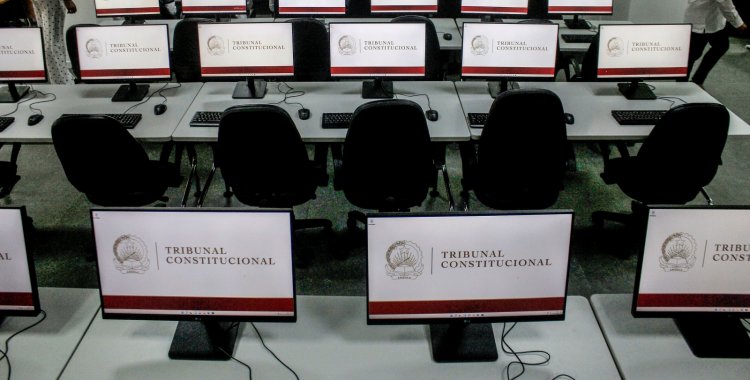In December last year, the parliamentary group of the National Union for the Total Independence of Angola (UNITA) sent a case to the Constitutional Court regarding the successive abstract review of the constitutionality of the norm of the Rules of Procedure of the National Assembly, within the scope of the accusation and dismissal of the President of the Republic.
In a ruling released this Thursday, the advisory judges of the Constitutional Court decided to "deny the request for the declaration of unconstitutionality of rule no. 3 of article 284 of the Rules of Procedure of the National Assembly".
This rule states that "once the proposal to initiate the process of indictment and dismissal of the President of the Republic has been received, the plenary of the National Assembly meets urgently and creates, by an absolute majority of the deputies in full office, an Occasional Committee, in order to to prepare an opinion report on the matter, within the deadline set".
For its part, the Constitution provides in point 5 of article 129 that "the initiative proposal is presented by one third of the deputies in office" and that "the deliberation is approved by a majority of two thirds of the deputies in office, after this, the respective communication or procedural petition must be sent to the Supreme Court or the Constitutional Court, as the case may be".
In the 30-page decision, the plenary of judges considers that "in fact, number 5 of article 129 of the Constitution does not say anything about the procedures to be adopted by the National Assembly after receiving the proposal to initiate the processes of criminal liability and dismissal of the President of the Republic, and does not expressly provide for the creation of a possible commission".
"Therefore, either the Supreme Court or the Constitutional Court, as the case may be, cannot promote criminal liability and the dismissal of the President of the Republic without the accusatory impulse of the National Assembly", reads the ruling.
The UNITA parliamentary group complained that the president of the National Assembly, Carolina Cerqueira, in the extraordinary plenary session on October 14, 2023, violated the legal precepts on the creation of an Eventual Committee that should prepare an opinion report on the dismissal process, proposed by 90 deputies from the main opposition party, and which would then be discussed and voted on in the plenary.
According to the parliamentary group of the largest opposition party, Carolina Cerqueira "was forced" to resort to several "extra-regulatory" and unconstitutional procedures to prevent deputies from voting, secretly, for or against the creation of the eventual commission.
UNITA considered that under the terms of the Constitution and the Rules of Procedure of the National Assembly itself, votes are preceded by a draft resolution, however, on October 14, 2023, Carolina Cerqueira decided to reverse the rules of the "democratic game" and imposed a deliberation without this draft resolution.







